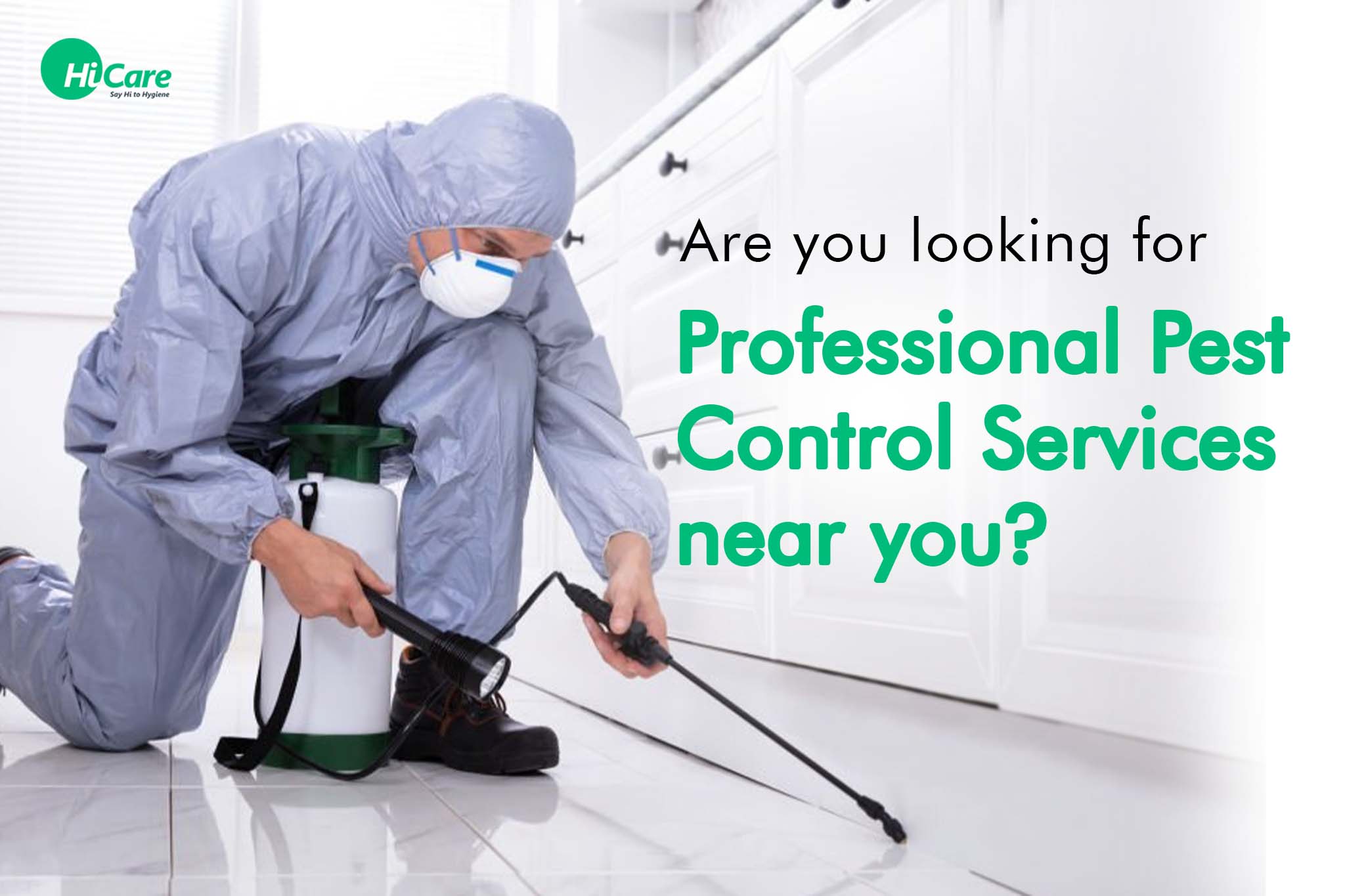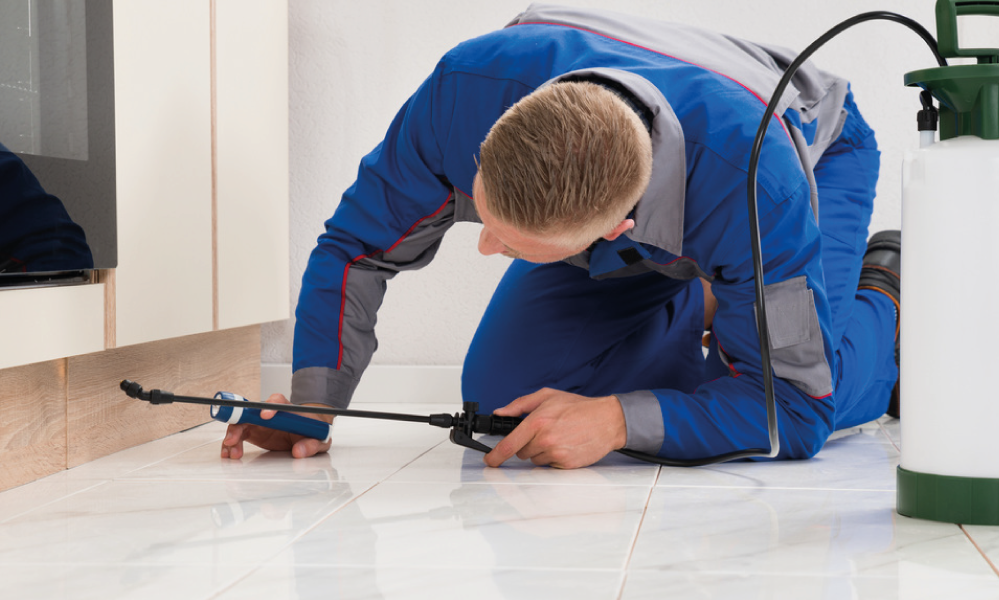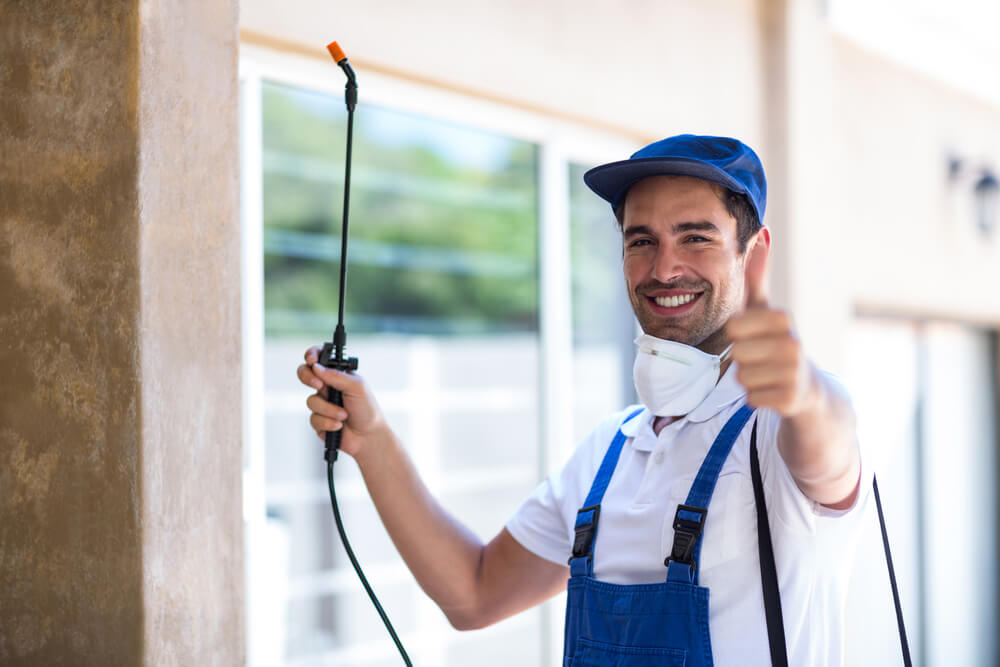Premier Pest Control Clovis Solutions: Your Comfort
Premier Pest Control Clovis Solutions: Your Comfort
Blog Article
Recognizing the Different Strategies to Bug Control: A Comprehensive Guide

All-natural Parasite Control Approaches
Utilizing environmentally friendly techniques such as companion growing and biological pest control is crucial for successfully handling insects in agricultural setups. Companion planting entails growing various plants in proximity to hinder bugs, enhance nutrient uptake, and boost general crop health and wellness.
Biological parasite control includes introducing natural predators or pathogens to regulate pest populaces. Ladybugs, as an example, feed on aphids, controlling their numbers without the demand for chemical pesticides. An additional example is making use of Bacillus thuringiensis (Bt), a microorganism that targets certain insect pests while being safe to people, pets, and beneficial pests.
These green techniques not only minimize the reliance on artificial pesticides but likewise help protect biodiversity and dirt health and wellness. By incorporating all-natural parasite control strategies right into farming methods, farmers can achieve sustainable bug management while decreasing unfavorable influences on the environment.

Chemical Parasite Control Solutions
In addition to all-natural pest control techniques, the usage of chemical bug control solutions plays a substantial role in successfully taking care of pest populations in farming settings. Chemical pest control services are developed to target details insects that may create extensive damages to crops. These options often consist of synthetic pesticides that are developed to remove parasites rapidly and efficiently.
One of the key benefits of chemical bug control options is their performance in managing bug invasions on a big scale. Farmers can apply these solutions making use of numerous approaches such as spraying, fumigation, or seed treatment to shield their plants from harmful pests, weeds, and conditions. Furthermore, chemical insect control services are relatively very easy to use and can supply rapid results, helping farmers safeguard their returns and lessen economic losses.
Nevertheless, it is vital to use chemical bug control services judiciously to lessen potential adverse influences on the setting, non-target organisms, and human wellness. Appropriate application strategies, adherence to security standards, and regular surveillance are essential to make certain the accountable use chemical pest control options in agricultural methods.
Organic Pest Control Approaches
Biological bug control comes close to leverage natural predators or virus to take care of pest populations in farming setups properly. One common organic control approach is the introduction of all-natural adversaries, such as ladybugs or parasitic wasps, to target certain parasites.
One more organic control technique involves making use of microorganisms like germs, fungi, or infections to contaminate and kill bugs. In general, organic insect control approaches use a lasting and targeted option to pest monitoring in agriculture.
Integrated Insect Administration (IPM)
Integrated Parasite Management (IPM) is an extensive strategy that combines different parasite control techniques to properly manage and lessen pest populaces in agricultural systems. IPM focuses on lasting prevention of insects with a mix of biological, cultural, physical, and chemical control techniques. By incorporating these various methods, IPM aims to minimize dependence on chemical pesticides, minimize environmental effect, and advertise lasting pest administration methods.
One trick facet of IPM is making use of biological controls such as natural predators, parasites, and microorganisms to manage parasite populations. This method utilizes the power of nature to preserve an equilibrium in between parasites and their all-natural adversaries without causing damage to the atmosphere.
Furthermore, IPM includes social techniques like plant turning, sanitation, and habitat adjustment to develop negative problems for parasites and interrupt their life process. Physical controls such as catches, obstacles, and composts are also made use of to avoid parasite problems.
Mechanical and Physical Insect Control Techniques
Utilizing non-chemical methods, such as physical and mechanical parasite control strategies, is a vital facet of detailed bug monitoring approaches, constructing upon the foundation of Integrated Insect Management's holistic approach. Mechanical bug control involves using physical you can try these out obstacles or traps to prevent bugs from accessing and damaging plants or structures. This technique can include methods like setting up screens on windows, utilizing row covers in farming, or employing sticky catches to catch pests.
Physical insect control approaches, on the other hand, concentrate on directly removing insects through physical ways. For instance, utilizing heat treatments to eradicate bed insects or vacuuming up pests like ants or crawlers can official website be effective means to manage problems without making use of chemicals. By integrating these mechanical and physical bug control strategies into an Integrated Parasite Management strategy, people and experts can lower reliance on pesticides while still properly reducing and handling pest populaces damages.
Conclusion

In addition to all-natural parasite control techniques, the use of chemical insect control solutions plays a substantial function in successfully managing pest populaces in farming atmospheres.One of the key benefits of chemical bug control solutions is their performance in managing parasite invasions on a large browse around this site range.Integrated Bug Management (IPM) is a detailed approach that integrates various bug control strategies to successfully handle and reduce pest populaces in agricultural systems.Making use of non-chemical methods, such as physical and mechanical insect control strategies, is a vital aspect of extensive parasite administration methods, building upon the foundation of Integrated Parasite Administration's all natural method. By integrating these physical and mechanical pest control methods right into an Integrated Parasite Management plan, professionals and individuals can lower reliance on pesticides while still properly lessening and taking care of pest populaces damages.
Report this page